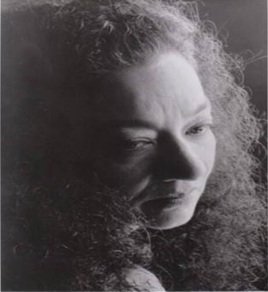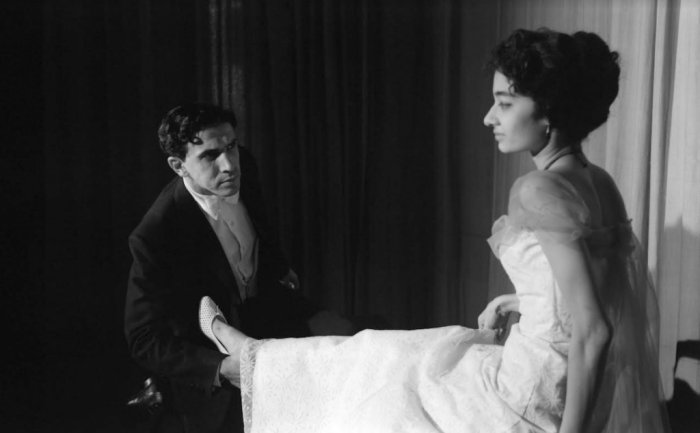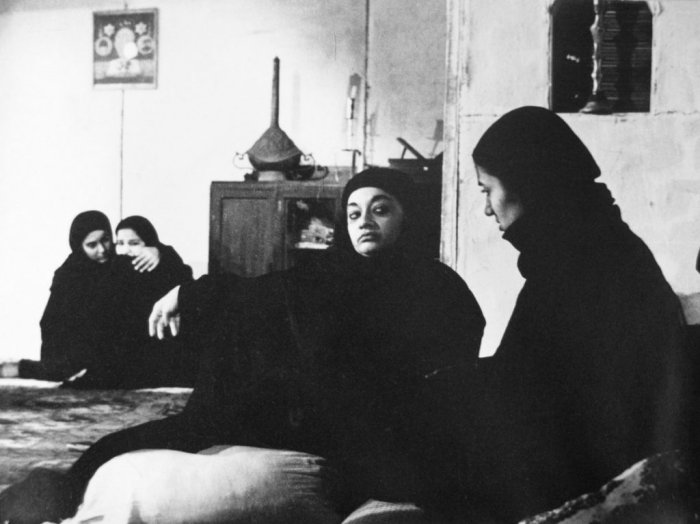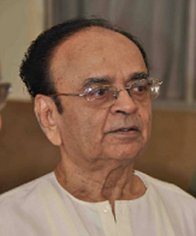 |
  |
 |
  |
Alaknanda Samarth: A rare jewel of the theatre world lost - Dr. S.D. Desai e-mail: sureshmrudula@gmail.com December 27, 2021  Alaknanda As much as Alaknanda Samarth had prominence as a drama artist much sought after till the end, in the razzmatazz of the modern film and theatre world the value of this rare jewel, it seems, was known but to a few connoisseurs besides contemporaries who had worked with her, her disciples from drama schools in Delhi and Thrissur and members of her distinguished family (Shobhna Samarth was her aunt), all of whom of course paid handsome tributes to her. What lent rarity to the genius of Alak, as she was fondly called, was a combination of an exceptional sensibility that like a sharp antenna received signals of characteristic traits of an extraordinary character and a creative power of her idiom to express those traits in terms of physical action and speech sounds. This combination received a push from her irrepressible desire to seek varying experiences as a woman, and she realized they were far more diverse and painful than her male counterpart, in life. Gifted directors of the time spotted this spark in her and helped it grow into a raging fire of creativity. The recognition of her acting potential initially came from Ebrahim Alkazi before he became director of NSD (Delhi) - truly a lifetime achievement for her - when he cast her as Julie in August Strindberg's compact tragedy Miss Julie in 1960 when she was just 19. Alkazi not only directed the play, he played Jean against her. A bindas Julie, an aristocrat's daughter brought up to have no inhibitions, on a midsummer festival night seduces her servant Jean. Against her readiness to climb down the ladder of social hierarchy is Jean's reluctance to accept an opportunity to climb up.  Alkazi and Alaknanda in Miss Julie (Source: Alkazi Theatre Archive) Alaknanda must have played Julie with the unbridled youthful impudence the character demanded. Her portrayal won her an international fellowship. Riding a crest of success, she made her way right to the Royal Academy of Dramatic Art (London). With the RADA graduation in her bonnet, she now became Estelle in an Urdu adaptation of Jean-Paul Sartre's famous existential two-act play No Exit in Satyadev Dubey's informed direction at his initiative. At a young age, she had a taste of popular applause and critical appreciation of her talent and potential to be versatile. Her professional success got combined with happy tidings in personal life. In 1965, she married in Bombay (now Mumbai) a handsome young Frenchman Francois Duriaud, who was later hailed as “one of the all-time great Reuters journalists.” He died two years ago at the age of 78. The two are survived by a daughter and a son, both abroad. G Sankara Pillai is said to have written Kunti, an original interpretation of the Mahabharat character, with Alak in mind. The Kumar Sahani presentation of Kunti, followed by Jean Cocteau’s The Human Voice, both irresistible one-woman performances, had Chandralekha to choreograph and Bhanu Athaiya to costume her and Akbar Padamsee to design the sets. Veenapani Chawla was the producer. One monologue expresses a human desire of a woman almost deified in the epic. The other, translated into English from French, has a woman who vainly would not let go of a relationship with her estranged lover.  Alaknanda (in the centre) in The House of Bernarda Alba (Source: Alkazi Theatre Archive) Alak never settled for the ordinary. Amal Allana, like her father, recognized her extraordinary expressive talent, mature now, to portray a complex character of the widowed mother of five daughters in Lorca’s The House of Bernarda Alba (1982) in Urdu. All are robed spotlessly in black and assuming the patriarchal authority she has observed, she denies herself and her daughters any access to the world outside and in particular the male world, turning a blind eye to their physical urge. From Julie to Kunti to Bernarda, Alak could be trusted to portray a haunting female experience of psycho-realism. It is difficult to enumerate all other roles Alaknanda played - Jean Anouilh's Eurydice in Alkazi's direction when she was a teenager, her Ayah in John Dexter's Phaedra Britannica (1975), based on Racine's play, at London's National Theatre, Antonin Artaud's Theatre and the Plague (2018), a reading, and so on. Even on her deathbed, she was noticed reading T S Eliot's The Waste Land and the Upanishads - what a contrast! - for an audition. With the exposures she had had to western lifestyle, she spoke English with the felicity of its native speaker. In Urdu adaptations of plays, she spoke the language with naturalness. For the elegance of her demeanour, movement and voice modulation, she is regarded as one of those few exceptionally gifted actors having an irresistible stage presence. Alaknanda was not just an actor. She explored through her dramatic idiom ways to understand female emotions along their full spectrum. (Alaknanda Samarth passed away in London on December 6, 2021.) 
Dr. S.D. Desai, an author and a contributor to dance, drama and literary journals, is a freelance art writer. Post your comments Please provide your name and email id along with your comment. All appropriate comments posted with name and email id in the blog will also be featured in the site. |